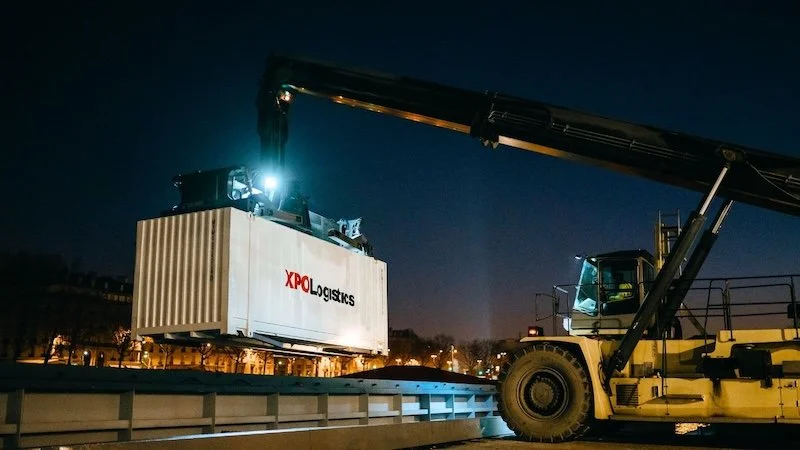How e-commerce fulfilment can help your business expand globally
It has never been easier to expand your e-commerce business globally.
This is highlighted by the total value of the global e-commerce market, which reached a total value of $6.51 trillion at the beginning of 2023. But there are still challenges associated with this practice, many of which can be tackled by leveraging specialist fulfilment service providers.
Björn van Brakel from Salesupply, explores these challenges and the benefits of outsourcing your e-commerce fulfilment in the article below.
What is e-commerce fulfilment?
In simple terms, e-commerce fulfilment refers to the process of storing, packing and shipping orders that have been completed online.
For companies that sell locally and within a relatively small, national catchment area, this process can usually be handled internally, particularly if key stakeholders have fulfilment expertise or have built an effective logistics network within the local area.
However, in-house fulfilment can become challenging when you scale quickly and expand into international markets, especially as you look to balance increased costs and various logistical complexities while also optimising turnover and profit.
In this instance, businesses may consider a number of alternative options. These can range from Fulfilment by Amazon (where the e-commerce giant manages the process on your behalf and even handles returns) to outsourcing, where you employ a third-party fulfilment specialist to work on your behalf.
E-commerce businesses may even combine in-house logistics with some kind of third-party fulfilment support, especially as they scale and their needs continue to change rapidly in a relatively short space of time.
What are the main challenges facing global e-commerce businesses?
If you own an e-commerce business that you intend to take global, you’ll need to understand the full scope of challenges that you’re likely to face as you scale up operations and look to increase sales volumes while optimising profitability.
Unsurprisingly, the majority of challenges facing global e-commerce stores are related to shipping and logistics. According to Statista, 44.5% of e-commerce entrepreneurs cited the successful navigation of customs as the single biggest challenge, with cross-border logistics (37%) also proving highly problematic.
Cross-border returns also placed a strain on e-commerce operational costs, with 33.5% of entrepreneurs highlighting this as their biggest issue. 34.5% reported the management of delivery of expectations as a significant problem, while a further 27.5% discussed the challenges of accurately tracking deliveries in real-time.
It’s interesting to note that all of these issues relate to global shipment and logistics, and this is without factoring in the cost of scaling your existing business model and the adverse financial impact of increased returns.
Overcoming hurdles with e-commerce fulfilment - what are the advantages?
Given the scope and impact of these challenges, it’s easy to see why e-commerce businesses may look to completely outsource fulfilment as they scale and enter overseas markets.
This is even more understandable in instances where entrepreneurs don’t count logistics among their core competencies. But what are the precise arguments for outsourcing your e-commerce fulfilment when expanding internationally? Let’s find out!
#1. Optimise Your Use of Time and Use Delegation to its Fullest Potential
In truth, you’re only likely to have a select few core competencies as an entrepreneur, as well as a host of transferable skills that enable you to take a hands-on approach to managing your business.
When looking to scale internationally or take on challenges that are outside your comfort zone, however, the ability to successfully outsource and delegate e-commerce fulfilment can drive the growth of your store while allowing you to focus your energy more effectively.
Remember, ecommerce fulfilment is largely operational in nature, while it involves several logistical components that can be hard to manage.
So, outsourcing this frees up significantly more of your time in the first place, and this can be subsequently used to focus on strategic disciplines such as sales and marketing your business internationally.
Outsourcing e-commerce fulfilment for your global store can also reduce operational costs, as you’re able to tap into existing logistic networks and organise bulk shipments at a considerably lower cost per item.
#2. Cut Costs Without Adversely Impacting Performance
The impact of outsourcing fulfilment has a far-reaching impact on reducing operational costs, which should come as no surprise given the range of shipping and logistic components that it can include.
For example, the costs of renting warehouse space, maintaining quality control and shipping through a disparate network of global couriers can accumulate quickly as you scale and expand your geographical reach.
Then there’s the issue of holding and storing inventory, which can also drive significant overhead costs and eat into any additional income at a disproportionate rate.
However, outsourcing fulfilment to a global specialist with multiple fulfilment centres around the world can automatically eliminate these operational costs, minimising the cost of doing international business while potentially improving your logistics performance.
#3. Enhance Your Customer Service
Customer service is a crucial factor in determining the success or failure of your ecommerce store, especially if you operate in a competitive market with minimal barriers to entry.
In this instance, good customer service can be a significant differentiator. It can also aid customer retention rates over time, and improving this metric by just 5% can increase your profits by anywhere between 25% and 95%.
For ecommerce brands, the speed and reliability of deliveries has a direct impact on customer service and retention, as can the quality communication between agents and customers when there are shipment delays.
When outsourcing fulfilment, you can minimise such delays and delivery issues even shipping goods into international markets, while specialists in this field can leverage their relationships with local couriers and communicate with customers in their native language.
Many e-commerce fulfilment specialists also enable you to outsource customer service simultaneously, or at least provide flexible and targeted support as you scale and reach into new markets.
The last word
As we can see, outsourcing e-commerce fulfilment offers significant advantages when you look to expand overseas, especially in terms of reducing costs (and optimising profitability), optimising performance and ensuring superior customer service that’s much easier to deliver.
Overall, outsourcing responsibility for e-commerce fulfilment will also improve the scalability of your e-commerce venture, whether you consider the speed and efficiency with which orders are processed or practical considerations such as customs and language barriers.
Outsourcing certainly means that you’re best placed to cope with any sudden peaks in demand when you start selling internationally, especially in instances where you combine with specialist and flexible customer support.














Continue reading…